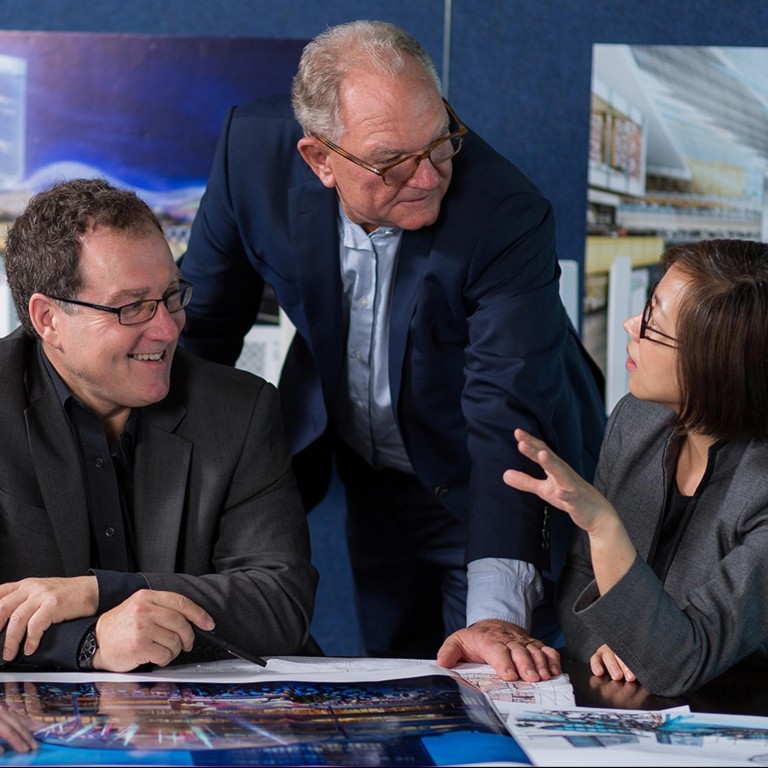
New | British architecture firm Benoy's China push on track despite slump
Benoy, the British architecture firm that designed the interiors of Hysan Place at Causeway Bay, says its business on the mainland is not immune to a slowdown in the property market but has remained largely unaffected. The company will also continue to pursue its global expansion.
"[President] Xi Jinping decided the 7 per cent growth as the new normal. So we are proud to be still successfully trading in China," Benoy's chairman Graham Cartledge said. "We now have two offices, in Shanghai and Beijing, and we are well positioned to continue that journey."
At a time when many mainland developers are still busy clearing their inventories that prevent housing prices from rising nationwide, a number of domestic and international architecture firms have taken a hit from the slow roll-out of construction projects on the mainland and have cut their expenses and staff.
However, Benoy said it had not made any pay cuts or lay-offs there.
The firm, which opened its first overseas office in Hong Kong in 2002, has expanded extensively into the mainland market.
Although weak retail sales have strained high-end mainland shopping malls where Benoy built its design brand, the company has managed to find new demand in mixed-use properties and infrastructure construction projects such as transport.
"Fifteen years have seen a great change in trading qualities and skill sets [on the mainland]," Cartledge said. "Initially, much of our work [there] emanated from Hong Kong, where there's recognised development and institutional groups.
"But we've found now that mainland development groups are very professional and learn skills very quickly to produce first-class projects."
Benoy said it still saw strong work flows from second and third-tier cities, while in the first tier, work demand was shifting to the suburbs such as Beijing's suburban Tongzhou district that would be the city's second administrative centre.
The company has worked with some of the country's biggest developers including China Resources Land, Greenland Group and China Vanke.
Its future projects in the mainland include Greenland GIC, a 512,000 sq metre mixed-use development in Chengdu, and Suzhou Centre, a 340,000 sq metre mixed-use project in Suzhou Industrial Park.
An increasing global portfolio also gives Benoy some insulation to regional market downturns. When business opportunities in one area shrink, there will be more from another market. Cartledge calls it rebalancing.
"Flow of capital normally lies in our business and we have open policies to supporting clients where they may take us," he said.
In July, Benoy opened its first office in Melbourne, following growing investment from Chinese individuals and developers in Australia's real estate market. Earlier this year, China overtook the United States as the second-largest buyer of Australian commercial properties.

